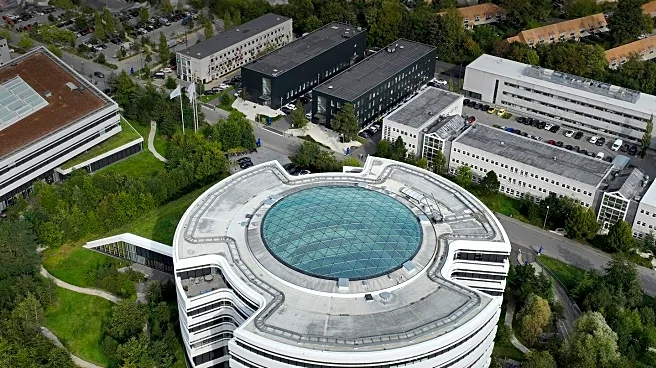What's Happening?
Architectural firm Weiss/Manfredi is gaining recognition for their innovative approach that blurs the lines between landscape design and architecture. Their projects, such as Hunter's Point South Park in Queens, showcase a seamless integration of natural
and built environments. The firm's founders, Marion Weiss and Michael Manfredi, draw on their diverse backgrounds to create spaces that are both functional and aesthetically engaging. Their work is characterized by a sensitivity to the surrounding landscape, which is evident in their designs for prominent locations like Lincoln Center and the La Brea Tar Pits.
Why It's Important?
Weiss/Manfredi's approach represents a shift in architectural practice, emphasizing the importance of environmental context and sustainability. By integrating landscape elements into architectural design, they challenge traditional notions of space and function, offering new possibilities for urban development. This methodology not only enhances the visual appeal of structures but also contributes to ecological resilience, addressing contemporary concerns about climate change and urbanization. Their work serves as a model for future architectural projects that prioritize harmony between human-made and natural environments.
What's Next?
As Weiss/Manfredi continue to expand their portfolio, their influence on architectural design is likely to grow. Upcoming projects at major cultural institutions may further solidify their reputation as leaders in innovative design. Their work could inspire other architects to adopt similar approaches, potentially leading to a broader transformation in how urban spaces are conceived and constructed. The integration of landscape and architecture may become a standard practice, influencing city planning and development strategies worldwide.
Beyond the Headlines
The firm's work raises important questions about the role of architecture in shaping human experiences and interactions with nature. By prioritizing landscape integration, Weiss/Manfredi challenge architects to consider the ethical implications of their designs, promoting a more sustainable and inclusive approach to urban development. Their projects encourage a reevaluation of how spaces are used and perceived, fostering a deeper connection between people and their environments.















